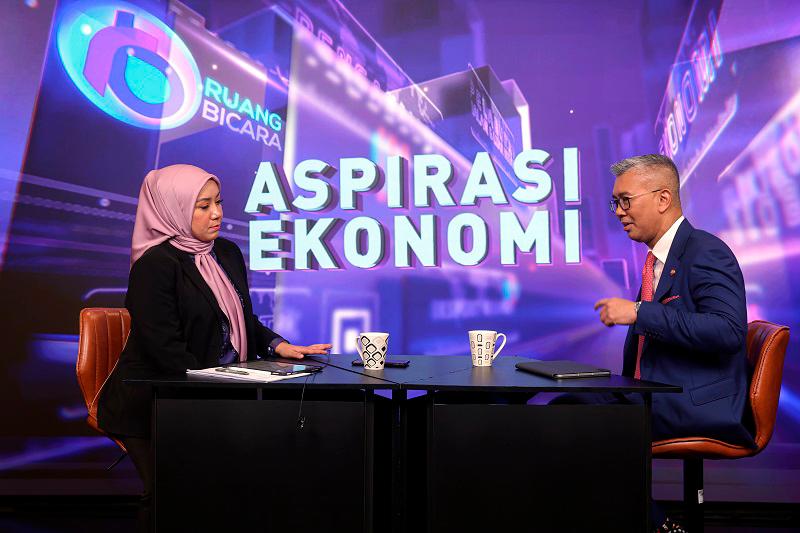KUALA LUMPUR: It is too early to determine whether the tariffs imposed by the United States on Canada, Mexico and China will harm or benefit Malaysia, said Minister of Investment, Trade and Industry Tengku Datuk Seri Zafrul Abdul Aziz.
He said that even though Malaysia had benefitted before, it would not mean the same benefits would be achieved.
“For an open trade country like Malaysia (where the ratio of trade to gross domestic product is 130 per cent), long term stability in the global trade market is very important. We also do not know what the United States will do next to Malaysia and our neighbouring countries,“ he told Bernama TV in an interview today.
He said this in response to the US’s move to impose a 25 per cent tariff on imports from Canada and Mexico and a 10 per cent tariff on imports from China. The tariffs on China took effect on Feb 4 but the tariffs on Canada and Mexico have been delayed for a month.
According to Tengku Zafrul, although the trade war between the US and China is seen to be increasingly tense and may affect certain sectors, Malaysia might receive positive spillovers in the short term.
He said the trade tension had actually started during the administration of Donald Trump 1.0 and was continued by Joe Biden, and now Trump 2.0 is expanding it.
“The trade war has led to a shift in the global supply chain, with investors looking for a more stable alternative location... the realignment is (headed) to countries that are neutral like Malaysia, like ASEAN and some other countries or economic blocs.
“Neutral countries such as Malaysia and ASEAN members have become preferred destinations because we offer a strong ecosystem and a conducive investment climate... and due to this shift, our country has recorded an increase in export value. Malaysia is chosen because of its political stability, open economy and neutral status in the geopolitical arena,“ he noted.
Last year, Malaysia’s exports reached a record high, driven by the electrical and electronics (E&E) and semiconductor sectors.
Malaysian remains neutral, focus on investments
Amid the global geopolitical tensions, Malaysia maintains a neutral stance and continues to attract quality investments, said Tengku Zafrul.
In 2023, the country posted approved record investments worth more than RM330 billion.
He said Malaysia is also active in strengthening investment policies, including through the New Industrial Policy (NIMP), the National Energy Transition Roadmap (NETR) and the National Semiconductor Strategy.
“Investment is not only of high value but should provide economic spillover to local companies, especially small and medium enterprises (SMEs). With the continued trade tensions, global companies tend to choose countries with stable ecosystems, economic openness, and strong free trade agreements (FTAs),“ he explained.
He noted that Malaysia has the advantage of having signed 16 FTAs, including the latest one with the United Arab Emirates (UAE) and that “we are also renegotiating the FTA with the European Union and South Korea.”
Challenges and opportunities
However, Tengku Zafrul warned that in the long term, the slowdown in global growth could affect demand and supply chains, emphasising the importance of ASEAN in strengthening internal trade and not being too dependent on the world’s big economies.
“ASEAN is the world’s fifth largest economic bloc with a GDP of US$3.8 trillion, but intra-ASEAN trade is still less than 25 per cent ... we need to increase regional economic integration. Malaysia is also trying to diversify its export markets to other regions such as Africa and South America to reduce dependence on major economic powers,“ he added.
Addressing the US concern about technology security, Tengku Zafrul stressed that Malaysia is committed to complying with international regulations. “We need to ensure continued enforcement and discussions with the US and China to convince them that Malaysia remains a responsible trading partner. Malaysia will continue to monitor global developments and be ready to respond to any major trade policy changes....and we must be ready to take advantage of the opportunities that emerge from these challenges,“ he added.









